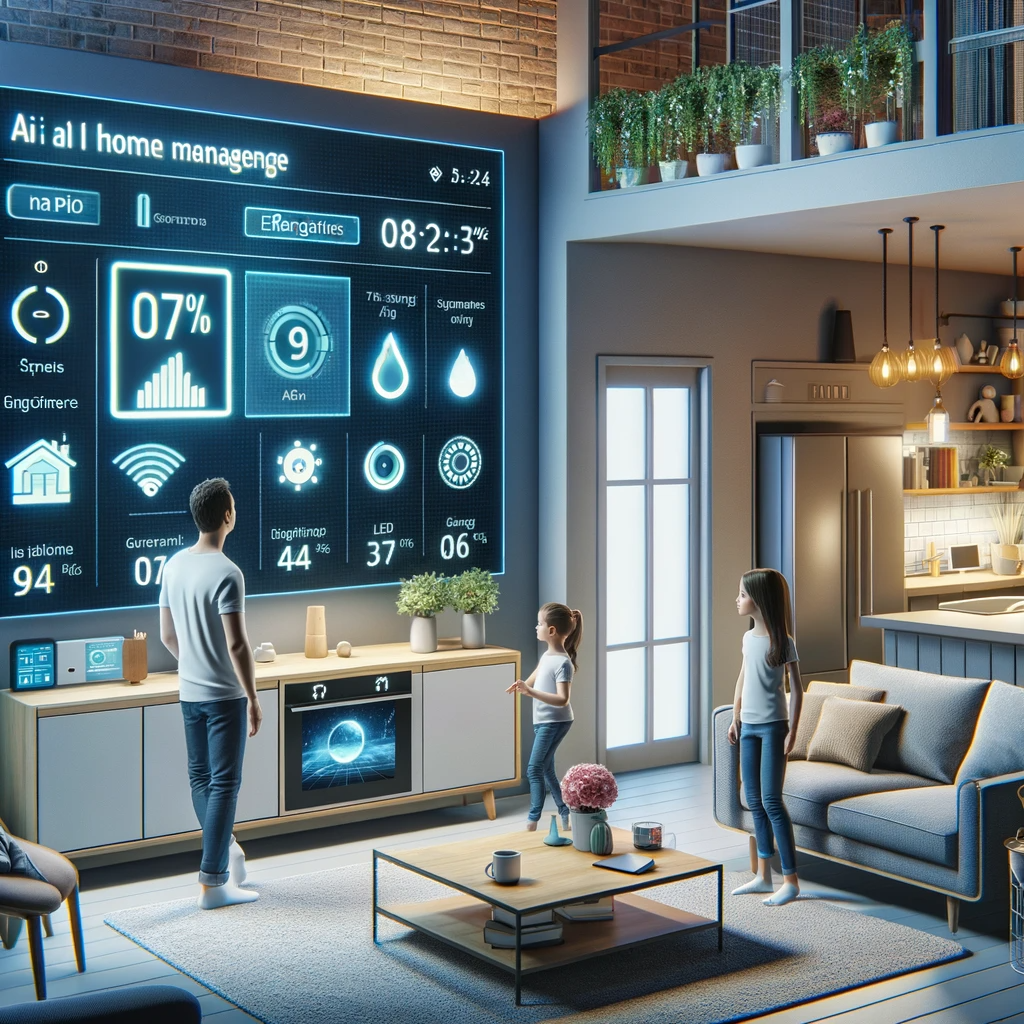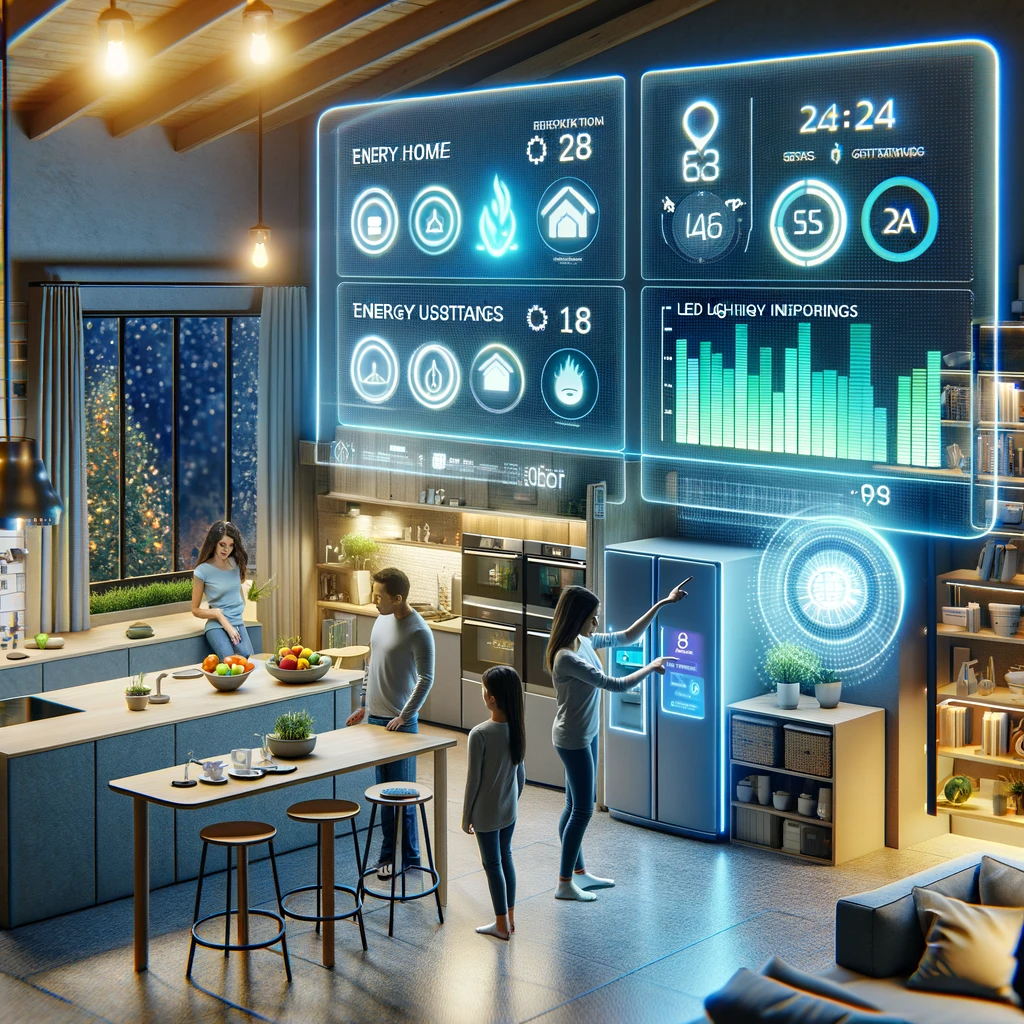In an era where energy efficiency and sustainability have become paramount concerns, the integration of Artificial Intelligence (AI) into our daily lives is revolutionizing the way we consume and manage energy. Smart homes, once a futuristic concept, are now a reality, and AI is at the heart of their transformation into energy-efficient, environmentally conscious spaces.
Our world is witnessing a growing demand for more efficient energy use, driven by the pressing need to mitigate the impacts of climate change and reduce our carbon footprint. It is against this backdrop that AI steps onto the stage, promising to facilitate a significant shift in how we interact with and control energy within our homes.
This article embarks on a journey through the interconnected landscape of smart homes and AI, exploring how AI technologies are facilitating more efficient energy use, enhancing sustainability, and redefining the way we interact with our living spaces.
The Growing Need for Energy Efficiency
The urgency of addressing energy efficiency has never been more apparent. As our world grapples with the consequences of excessive energy consumption, including climate change and resource depletion, there is a collective realization that we must reduce energy waste and transition towards a sustainable future.
Energy-efficient technologies and practices are vital in this endeavor, and smart homes are emerging as a key player in achieving our sustainability goals. By harnessing AI’s power, smart homes are evolving into dynamic environments that adapt and respond to our energy needs intelligently.
The Basics of Smart Homes and AI Integration
Before delving into the impact of AI on energy efficiency, it’s essential to understand the fundamentals of smart homes and how AI seamlessly fits into the equation. Smart homes are residential spaces equipped with devices and systems connected to the internet, allowing for remote control, automation, and data-driven decision-making.
AI integration in smart homes empowers these devices and systems with the ability to learn, adapt, and make intelligent choices. It is the marriage of AI and smart home technology that unlocks a new level of energy efficiency and sustainability.

AI-Powered Energy Management
One of the most significant contributions of AI to smart homes is its role in energy management. AI algorithms can analyze vast amounts of data related to energy consumption, weather conditions, and user preferences to make real-time adjustments that optimize energy usage. This leads to reduced energy bills, lower environmental impact, and increased comfort for homeowners.
In this section, we will explore how AI-powered energy management works and provide examples of devices and systems that are revolutionizing the way we consume energy within our homes.
Personalized Energy Profiles
AI doesn’t just optimize energy use; it personalizes it. By learning from user behavior and preferences, AI creates personalized energy profiles for each household member. These profiles ensure that heating, cooling, lighting, and other energy-consuming processes align with individual routines and preferences.
Personalized energy profiles not only enhance comfort but also contribute to significant energy savings. We will delve into the benefits and practical implications of tailoring energy consumption to the unique needs of homeowners.
Integration with Renewable Energy Sources
The synergy between AI-powered smart homes and renewable energy sources is a powerful driver of sustainability. AI can seamlessly integrate solar panels, wind turbines, and other clean energy technologies into the home’s energy system. It optimizes the use of renewable energy sources, stores excess energy, and ensures efficient energy distribution.
We will explore how AI contributes to harnessing renewable energy within smart homes, ultimately reducing reliance on fossil fuels and lowering greenhouse gas emissions.
AI’s Role in Appliance Efficiency
AI extends its influence to individual appliances within smart homes. Smart devices equipped with AI algorithms can automatically adjust settings to maximize energy efficiency. From thermostats that optimize heating and cooling to appliances that operate during off-peak hours, AI-driven devices contribute to cost savings and environmental benefits.
We will discuss specific examples of AI-enhanced appliances and their impact on overall energy efficiency.
Monitoring and Remote Control
AI not only optimizes energy use but also offers homeowners the convenience of remote monitoring and control. Smartphone apps and voice assistants allow users to make real-time adjustments to energy-consuming devices, even when they are away from home. This level of control enhances energy efficiency and provides peace of mind.
In this section, we will explore how AI-enabled remote control enhances the user experience and contributes to energy savings.
Sustainability and Environmental Impact
The broader implications of AI-driven energy efficiency within smart homes extend to sustainability and environmental impact. Reduced energy consumption leads to a lower carbon footprint and a more sustainable way of living. We will examine how smart homes equipped with AI contribute to a greener, more environmentally conscious future.
Challenges and Considerations
While the integration of AI into smart homes for energy efficiency offers significant benefits, it also raises important challenges and considerations. Issues related to data privacy, security, and user education must be addressed to ensure responsible AI usage within smart home environments.
The Future of AI in Smart Homes
As AI continues to advance, the future of smart homes becomes increasingly exciting and sustainable. Emerging trends such as AI-driven predictive maintenance, energy trading, and grid optimization promise to reshape the way we interact with energy in our homes.
In this section, we will explore the potential advancements in AI technologies for smart homes and how they will contribute to a more energy-efficient and sustainable future.

Conclusion
In conclusion, the integration of AI into smart homes is ushering in a new era of energy efficiency and sustainability. As we navigate a world that demands greater environmental responsibility, AI offers a powerful tool to transform our homes into more intelligent, eco-conscious spaces.
The impact of AI on smart homes goes beyond convenience; it extends to our responsibility as stewards of the planet. By embracing AI-driven energy management, personalized profiles, renewable energy integration, and more, we can contribute to a greener and more sustainable future.
This article invites readers to explore the exciting and transformative potential of AI in facilitating more efficient energy use within smart homes. As we embrace AI technology, we take a step closer to a world where homes not only meet our needs but also harmonize with the environment.
